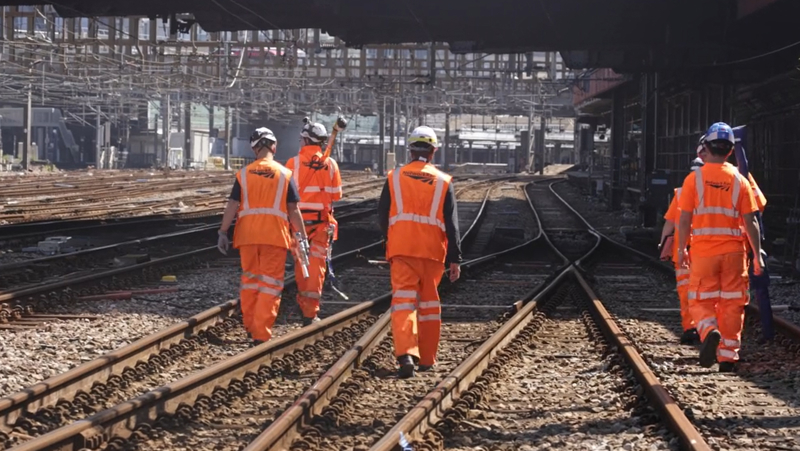
Skilled railway jobs are being lost as government investment in the industry is held back, according to NSAR (National Skills Academy for Rail).

Skilled railway jobs are being lost as government investment in the industry is held back, according to NSAR (National Skills Academy for Rail).
“There is a shortage of work. That is a fact,” NSAR Chief Executive Neil Robertson told RAIL.
“Neary all the people in the supply chain are letting staff go or moving them around. Very few are not.”
Robertson said some are being made redundant, while others are being deployed to other industries or even other countries.
Office for National Statistics data shows a reduction in the total rail workforce from 740,000 in 2019 to 640,000 in 2023.
Meanwhile, the Railway Industry Association’s annual survey of 250 rail business leaders showed 83% expect a hiatus in the year ahead.
RIA told MPs on the Transport Select Committee: “Many companies are taking steps that will further reduce the workforce.”
It added: “One key supplier has reported to RIA that they have had to make 660 employees redundant, including 172 skilled and experienced signalling staff, due to unusually long delays in work coming through.”
Robertson agreed that more cuts will follow the government’s Spending Review, expected in June. With increased funding for defence, the Department for Transport is one area that could be ordered to go without.
“Our secret sources say they are modelling for a 20% reduction in spending at the Department, but a 10% reduction would appear more likely,” he said.
“The reality is that the supply chain will have to do less work with less people. Less with less. We can see that demand for work is not where anyone expected, because government has delayed spending.”
A senior Network Rail engineer told RAIL his working assumption is that there would be little enhancement work in future, with all effort focused on life-extension of existing infrastructure.
“I’m sure the Transpennine Route Upgrade will survive this, and so will East West Rail. But nothing else will,” said Robertson.
Siemens Mobility Joint Chief Executive (UKI) Rob Morris said: “There is clearly a longer lull in work materialising, with little foreseeable upturn. Which means businesses have to cut costs and staff. The longer-term concern is that the industry loses capability and system operational knowledge.”
Morris warned that this was not good for the government, business, or the taxpayer.
However, Siemens is also investing £100 million in a new factory in Chippenham, where groundwork has recently started. A ceremony took place there on April 4.
“Performance and reliability will go down, and operating costs will therefore go up,” said Robertson. Presumably, the performancen will become intolerable after a few years as the impact hits, and the government will then decide we have to invest again.
“People will have to be brought back, either through training or poaching, leading to wage inflation - boom and bust.”
NSAR calculated that 9% of people working on the railway left their jobs last year.
In research carried out exclusively for RAIL (see feature, pages 30-33), it warned of a looming retirement problem because of an ageing workforce.
The skills and training organisation found that four in ten guards are likely to retire by 2030, along with one in three signallers. Many were choosing to retire earlier than workers in other sectors.
Network Rail said the average age of an employee at retirement is 62, which is three years below the national average.
Login to continue reading
Or register with RAIL to keep up-to-date with the latest news, insight and opinion.


















Trackrenewal2000 - 18/04/2025 06:34
The last time this happened ie lack of proper maintenance of infrastructure we ended up with the Hatfield disaster. When will Goverment learn?